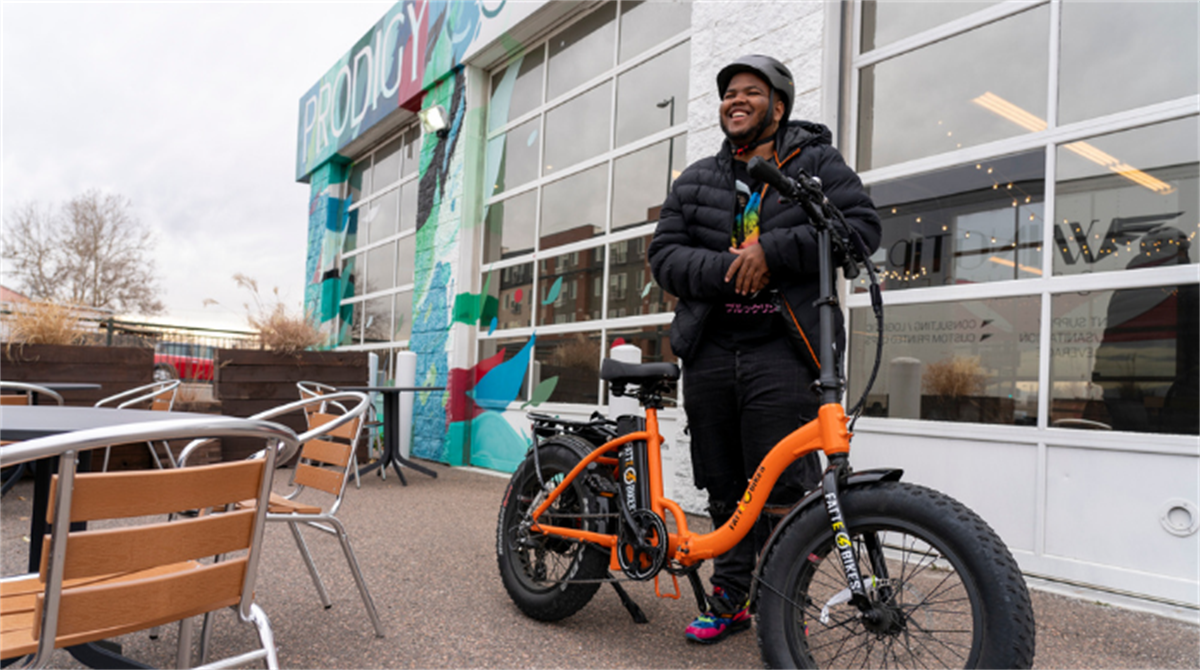Dive Brief:
- Over nine months, 4,734 residents became electric bike owners through Denver’s e-bike incentive program, with 71% of survey respondents reporting they used gas-powered vehicles less often after purchasing an e-bike, according to a new report by the city and county and several environmental and biking organizations. That led to a reduction in carbon emissions.
- The $4.7 million e-bike program launched in spring 2022, offering vouchers worth at least $400to all Denver residents to purchase an e-bike, the report stated. In total, 67% of the program’s funds went to income-qualified residents who received $1,200 vouchers to buy e-bikes. An additional $500 went to residents that purchased an e-cargo bike.
- “The success of the Denver rebate program—and its clear impact on reducing transportation emissions—suggests that policymakers need to take e-bikes much more seriously as a climate action tool,” Ben Holland, urban transportation manager at the Rocky Mountain Institute, which collaborated on the report, said in a statement.

Dive Insight:
Last year, Denver joined California and Oregon; Atlanta; Nashville, Tennessee; and Washington, D.C., inpushing for e-bike rebate programs to decarbonize its transportation sector. The city aims to reduce greenhouse gas emissions by 65% by 2030 from a 2019 baseline using money from its Climate Protection Fund, which voters passed in 2020, raising local sales and use taxes.
Last month, in an interview with Smart Cities Dive, Mike Salisbury, Denver’s e-bike rebate program lead, touted the program’s success, which received more than 9,500 applications in 2022 and prompted city and county officials to make tentative plans to release additional vouchers in 2023.
The latest report — produced by the city and county of Denver, Bicycle Colorado, PeopleForBikes, Ride Report and the Rocky Mountain Institute — provides quantitative evidence of the program’s impact.
Program participants who were surveyed reported riding their bikes an average of 26 miles per week, replacing 3.4 round-trip vehicle trips. Among voucher recipients that used Ride App, 65% rode their bikes once daily, and 90% rode weekly, traveling an average of 3.3 miles per trip. During that time, shared bike and scooter trips in Denver reached the highest ridership since shared mobility launched in the city — the report’s authors say it’s evidence that the two city-supported programs complimented each other.
The program impacted income-qualified residents in particular, which used their e-bikes nearly 50% more than standard voucher recipients. It also helped generate new cyclists, with 29% indicating they were new bike riders.
Source: Smart Cities Dive















